Russian spy: Salisbury attack was 'brazen and reckless'
- Published
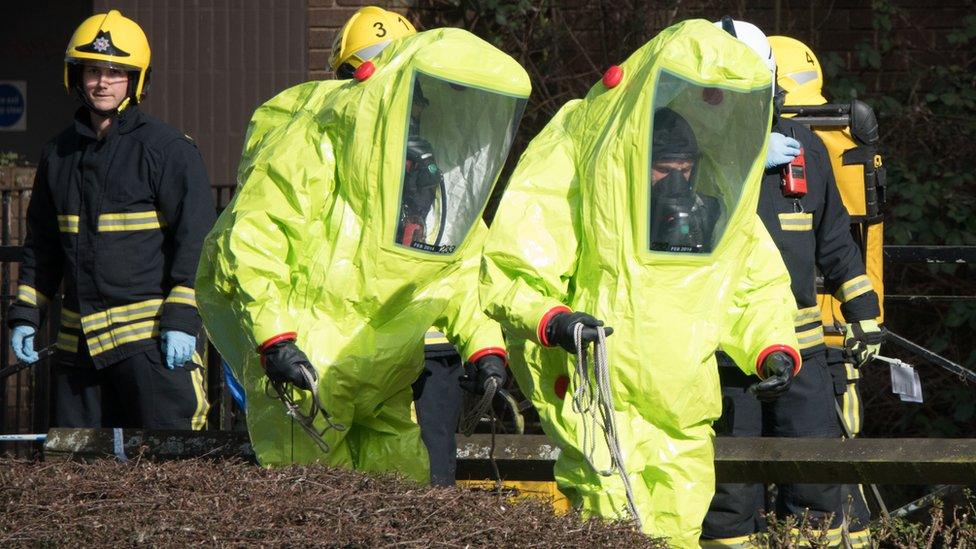
Specialist officers in protective suits have been examining Salisbury city centre
The attempted murder of ex-Russian spy Sergei Skripal and his daughter, Yulia, using a nerve agent was a "brazen and reckless" act, Amber Rudd has said.
Mr Skripal and his daughter are still critically ill after being found collapsed on a bench in Salisbury city centre on Sunday.
Counter-terrorism officers are working to find the origin of the nerve agent.
A police officer, who was in intensive care, is now "stable and conscious", Wiltshire's chief constable said.
Wiltshire Police named the officer as Detective Sergeant Nick Bailey.
Addressing the House of Commons, the home secretary said the attack was "attempted murder in the most cruel and public way".
Ms Rudd told MPs it was an "outrageous crime", adding that the government would "act without hesitation as the facts become clearer".
She refused to speculate on whether the Russian state might have been involved in the attack, saying the police investigation should be based on "facts, not rumour".
However, she said the government was committed to bringing the perpetrators to justice "whoever they are and wherever they may be".
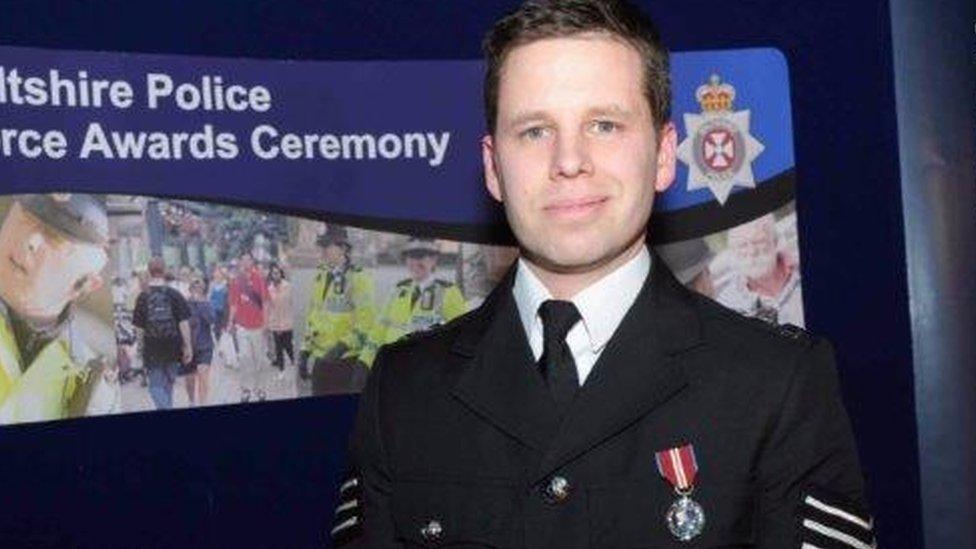
Detective Sergeant Nick Bailey is now in a stable condition after being treated in intensive care after the incident
Prime Minister Theresa May told ITV News that "if action needs to be taken then the government will do that".
"We will do what is appropriate, we will do what is right, if it is proved to be the case that this is state-sponsored," she said.
Russia has denied it was involved.
Amber Rudd said the attack was an "outrageous crime"
Meanwhile, a doctor who was one of the first people at the scene has described how she found Ms Skripal slumped unconscious on a bench, vomiting and fitting. She had also lost control of her bodily functions.
The woman, who asked not to be named, told the BBC she moved Ms Skripal into the recovery position and opened her airway, as others tended to her father.
She said she treated her for almost 30 minutes, saying there was no sign of any chemical agent on Ms Skripal's face or body.
The doctor said she had been worried she would be affected by the nerve agent, but added that she "feels fine".
BBC correspondent Leila Nathoo said there had been "a flurry of activity" outside Mr Skripal's Salisbury home on Thursday.
She said ambulances and an incident response team were in attendance and a police tent had been erected outside the house.
Graves sealed off
Part of a business park in nearby Amesbury also remains cordoned off, while the graves of Mr Skripal's wife and son at a Salisbury cemetery have also been taped off by police.
It comes as police said government scientists have identified the nerve agent used, but will not be making that information public at this stage.
A source familiar with the investigation told the BBC the agent was likely to be rarer than the Sarin gas thought to have been used in Syria and in an attack on the Tokyo subway in 1995.
And it was said not to be VX - the nerve agent used to kill the half brother of the North Korean leader Kim Jong-un in Malaysia last year.
Earlier, Ms Rudd told the BBC the nerve agent used in the poisoning was "very rare".
Defence Secretary Gavin Williamson said Russia was becoming an "ever greater threat", amid speculation the attack could have some element of state involvement.
"Russia's being assertive, Russia's being more aggressive, and we have to change the way that we deal with it because we can't be in a situation in these areas of conflict where we are being pushed around by another nation," he told ITV's Good Morning Britain.

Analysis
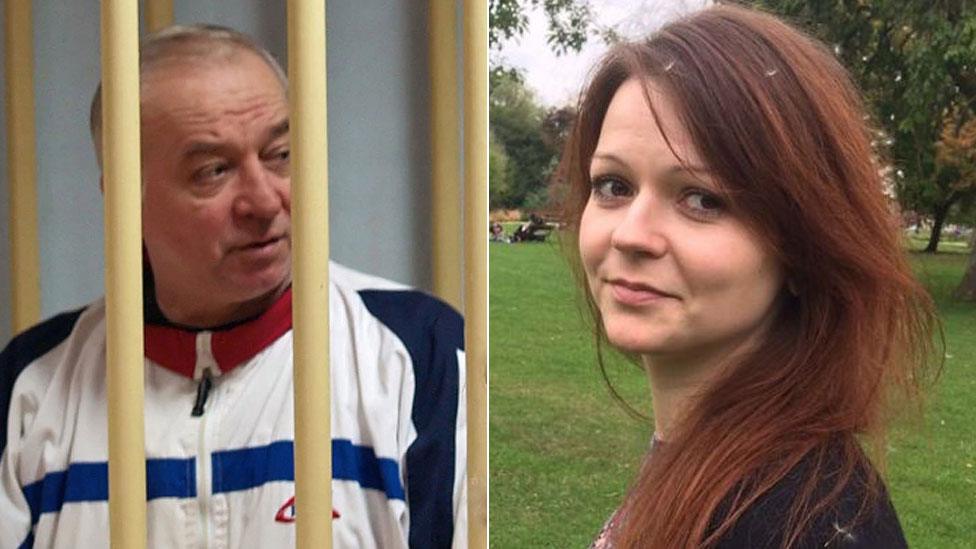
Mr Skripal, 66, and his daughter Yulia, 33, were found unconscious
By Gordon Corera, BBC security correspondent
The fact the nerve agent is "very rare" will help the investigation narrow its focus.
Making nerve agents and delivering them requires considerable infrastructure and the more unusual the agent the easier it will be to locate which country, even which laboratory, might be involved.
That combined with police leads on who delivered the agent will form the basis for a determination of responsibility, along with any other intelligence that can be gathered.
It may take days - even weeks - for the government to be confident enough to make a public statement, because it will not want to risk getting any details wrong.
But if suspicions about Russia are confirmed, then some kind of action seems inevitable.
The legacy of the 2006 Litvinenko case shows that expelling diplomats alone may not be regarded as much of a deterrent to future acts.
Economic sanctions on the Russian elite may have more bite, but would require greater political will.

Mr Skripal, 66, was convicted of passing secrets to MI6 but was given refuge in the UK in 2010 as part of a "spy swap".
It is known that he and his 33-year-old daughter had visited the Mill pub and Zizzi restaurant in Salisbury on Sunday afternoon, before they were found collapsed on a bench near the Maltings shopping centre.
Police have yet to say if they know how and where the poison was administered.
Officers said they wanted to speak to anyone who was in the centre of Salisbury on Sunday afternoon.
They are particularly keen to hear from people who ate at Zizzi or drank in the Mill pub between 13:00 and 16:00 GMT.
Both sites remain closed to the public.
Russian spy attack: What we know so far
Nerve agents are highly toxic chemicals that stop the nervous system working and shut down bodily functions.
They normally enter the body through the mouth or nose, but can also be absorbed through the eyes or skin.
CCTV has emerged of Sergei Skripal at a shop in Salisbury just five days before he and his daughter collapsed
Russia has insisted it has "no information" about what could have led to the incident, but is open to co-operating with British police if requested.
Russian Foreign Ministry spokeswoman Maria Zakharova said foreign media had used the case as part of an anti-Russian campaign.

Who is Sergei Skripal?
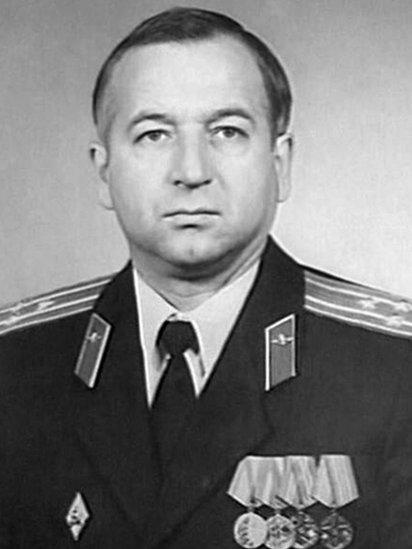
Sergei Skripal, 66, had been living in Salisbury after being released by Russia in 2010
Sergei Skripal is a retired Russian military intelligence colonel who was jailed for 13 years by Russia in 2006.
He was convicted of passing the identities of Russian intelligence agents working undercover in Europe to the UK's Secret Intelligence Service, MI6.
In July 2010, he was one of four prisoners released by Moscow in exchange for 10 Russian spies arrested by the FBI.
After a Cold War-style spy swap at Austria's Vienna airport, Mr Skripal moved to Salisbury, where he kept a low profile for eight years.

Do you have any information to share on this story? Email haveyoursay@bbc.co.uk, external.
Please include a contact number if you are willing to speak to a BBC journalist. You can also contact us in the following ways:
WhatsApp: +447555 173285
Tweet: @BBC_HaveYourSay, external
Send pictures/video to yourpics@bbc.co.uk, external
Send an SMS or MMS to 61124
You can receive Breaking News on a smartphone or tablet via the BBC News App. You can also follow @BBCBreaking on Twitter, external to get the latest alerts.
- Published8 October 2018
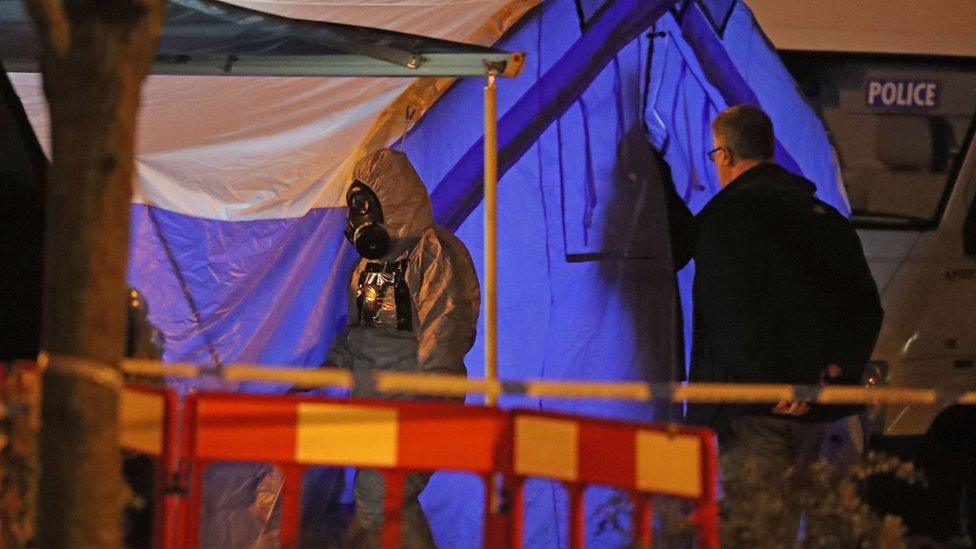
- Published7 March 2018
- Published29 March 2018
